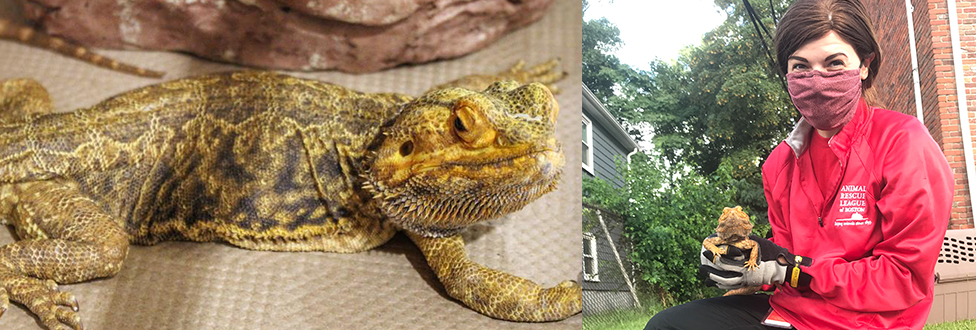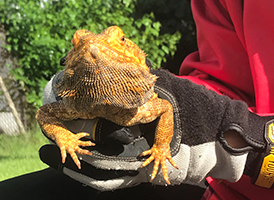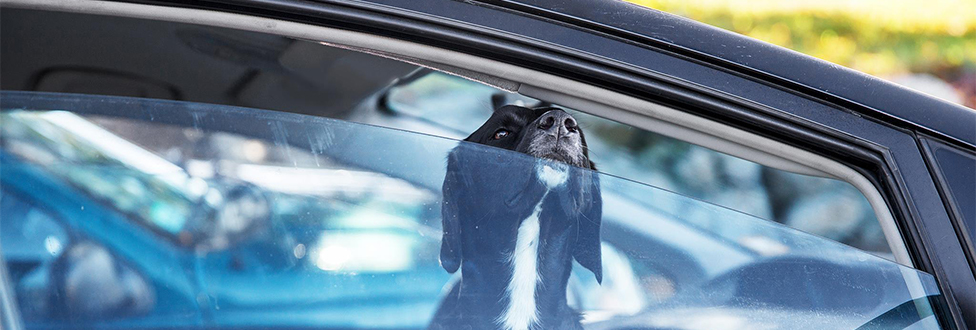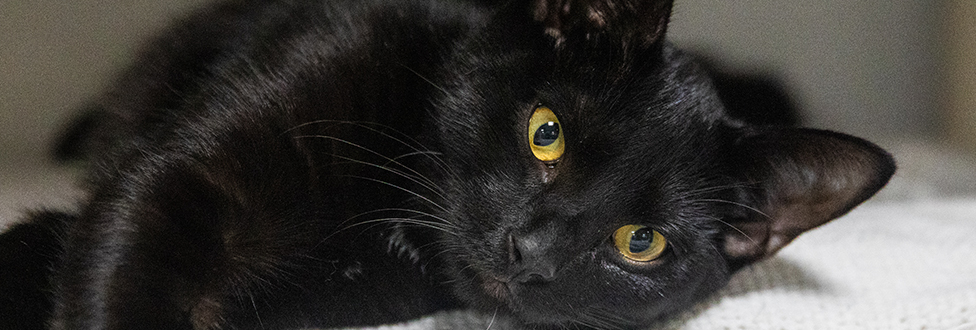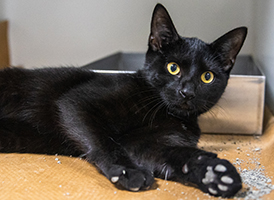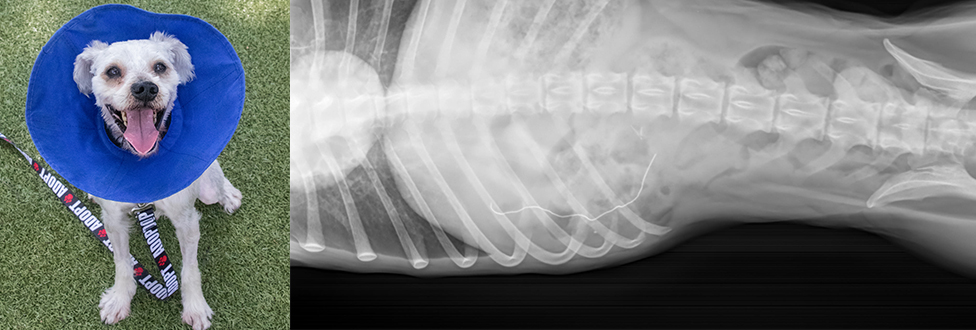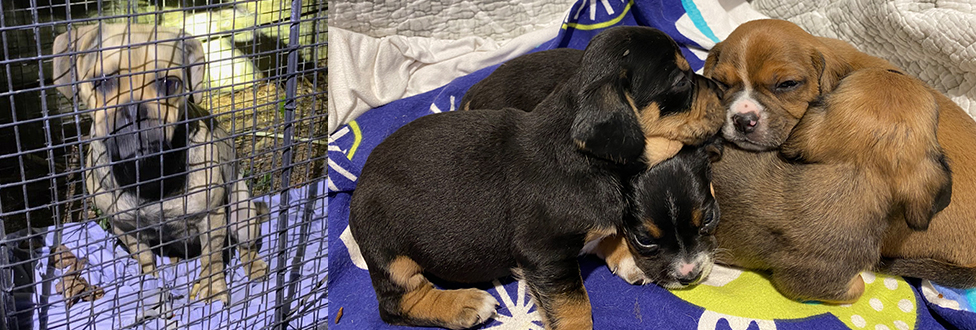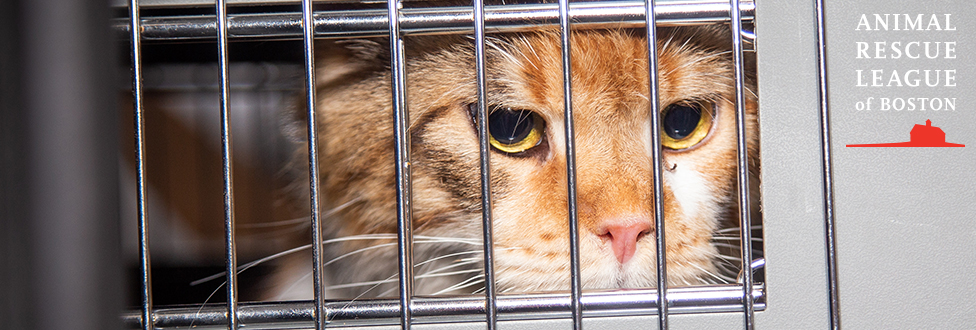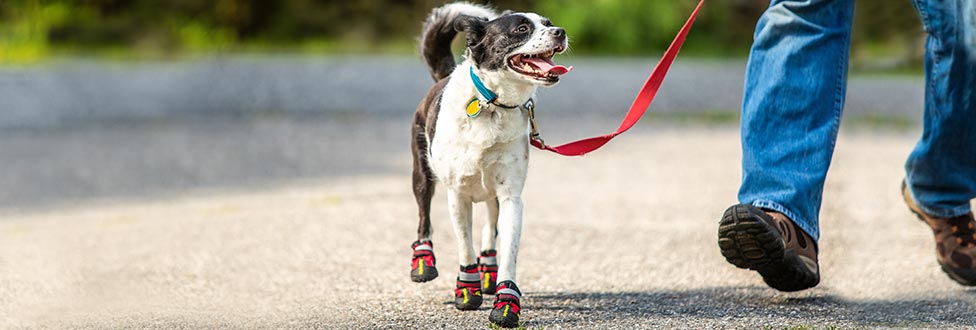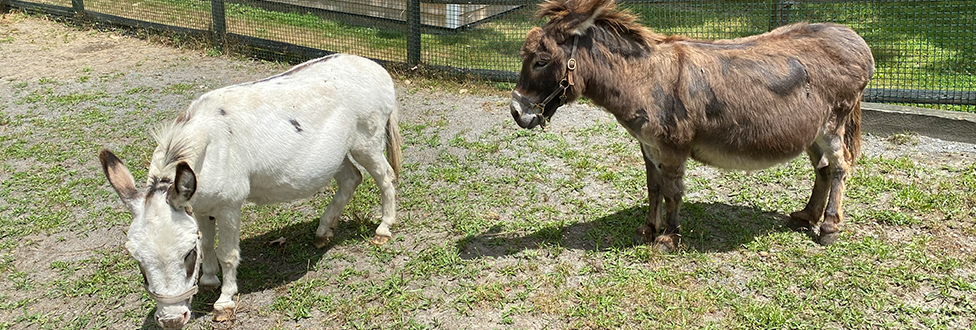FedEx Driver Spots Stray Bearded Dragon After Rain Storm
Earlier this month when the Metro Boston area was inundated by a period of afternoon thunderstorm activity, an astute FedEx driver wound up making more than deliveries.
On the lawn of a small apartment complex in Dorchester, the delivery driver noticed a bearded dragon lying in the grass.
Concerned for the animal’s welfare, the driver contacted the Animal Rescue League of Boston’s (ARL) Field Services Department to respond and care for the bearded dragon.
Upon arrival, Field Services agents noted that the bearded dragon was soaked from the rain and very cold.
Bearded dragons thrive in relatively low humidity environments (between 20 and 30 percent humidity), so given that the animal was caught in a torrential downpour and high humidity was concerning.
Field Services transported the one-year-old bearded dragon, now named Ballou, to ARL’s Dedham Animal Care and Adoption Center for a medical exam and treatment.
Ballou has done well since being in Dedham and is now looking for his forever home!
Caring for a Bearded Dragon
You may not know it from a bearded dragon’s stern expression, but these animals are in fact very docile and affectionate with humans!
Unlike many other lizards, bearded dragons are not nocturnal and are active during the day – perfect for forming a bond with your new companion.
Caring for a bearded dragon is fairly simple and here are a few things you’ll need to keep him health and happy in his new environment:
- A larger capacity glass tank (40 gallons or more) and a secure screen lid
- Sand, as well as obstacles like a rock or branches that your bearded dragon can climb on or hide behind
- A heating lamp so your bearded dragon can spend plenty of time basking in the sun
- A mister to keep your bearded dragon comfortable – a once-a-day spritzing is all that’s needed
- Bearded dragons are omnivores, so be sure to have a balanced diet of insects, fruits, vegetables, reptile feed, and always keep water at the ready
Ready to Adopt?
Due to COVID-19, adoption services are by appointment only.
If you are interested in talking with an ARL Animal Care Associate about Ballou, you can contact ARL’s Dedham location by calling (617) 426-9170 x605 to set up an appointment.
To ensure Ballou will have an adequate environment in which to thrive, you will also need to provide a picture of the enclosure you plan on keeping him in.

